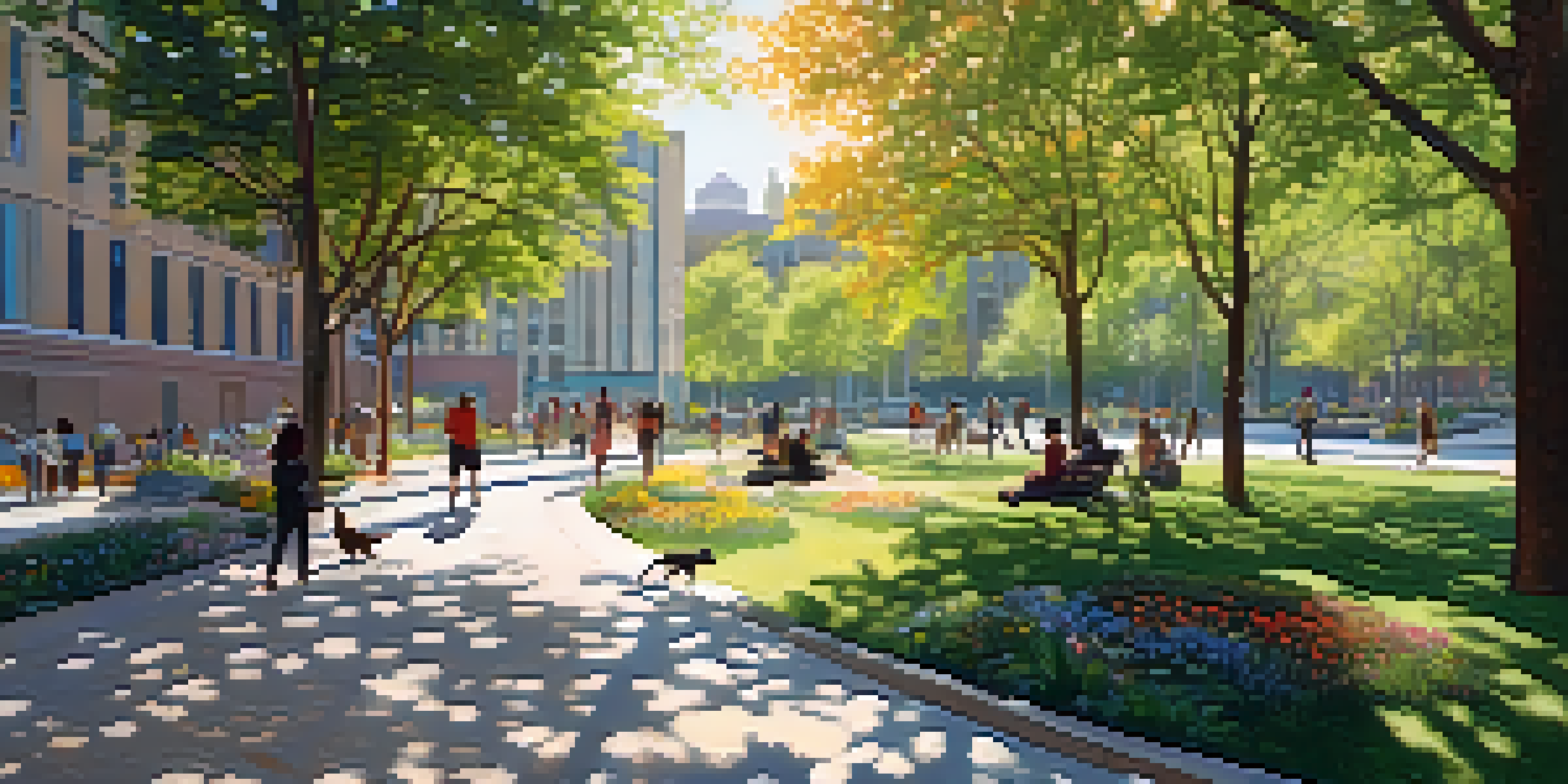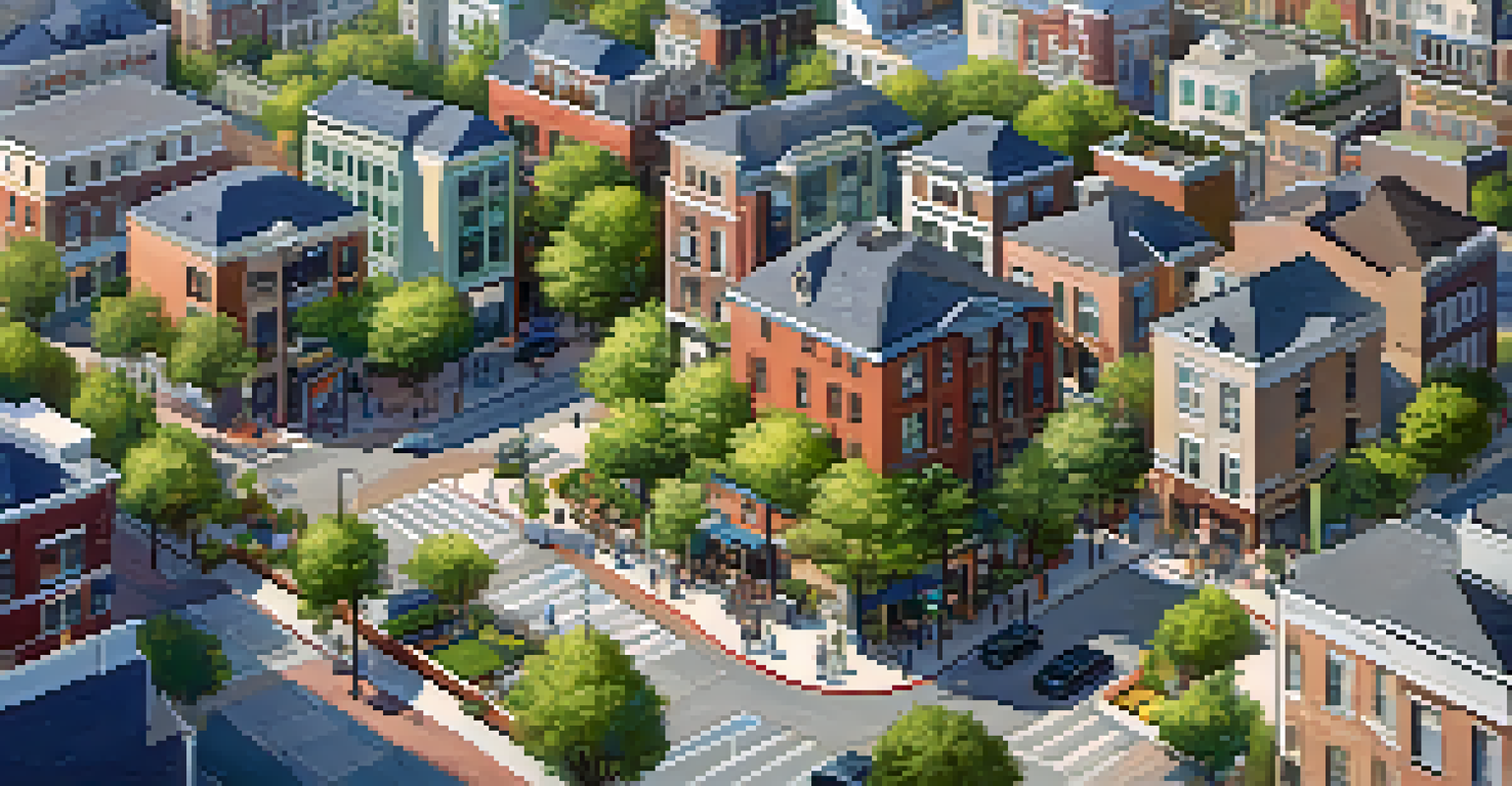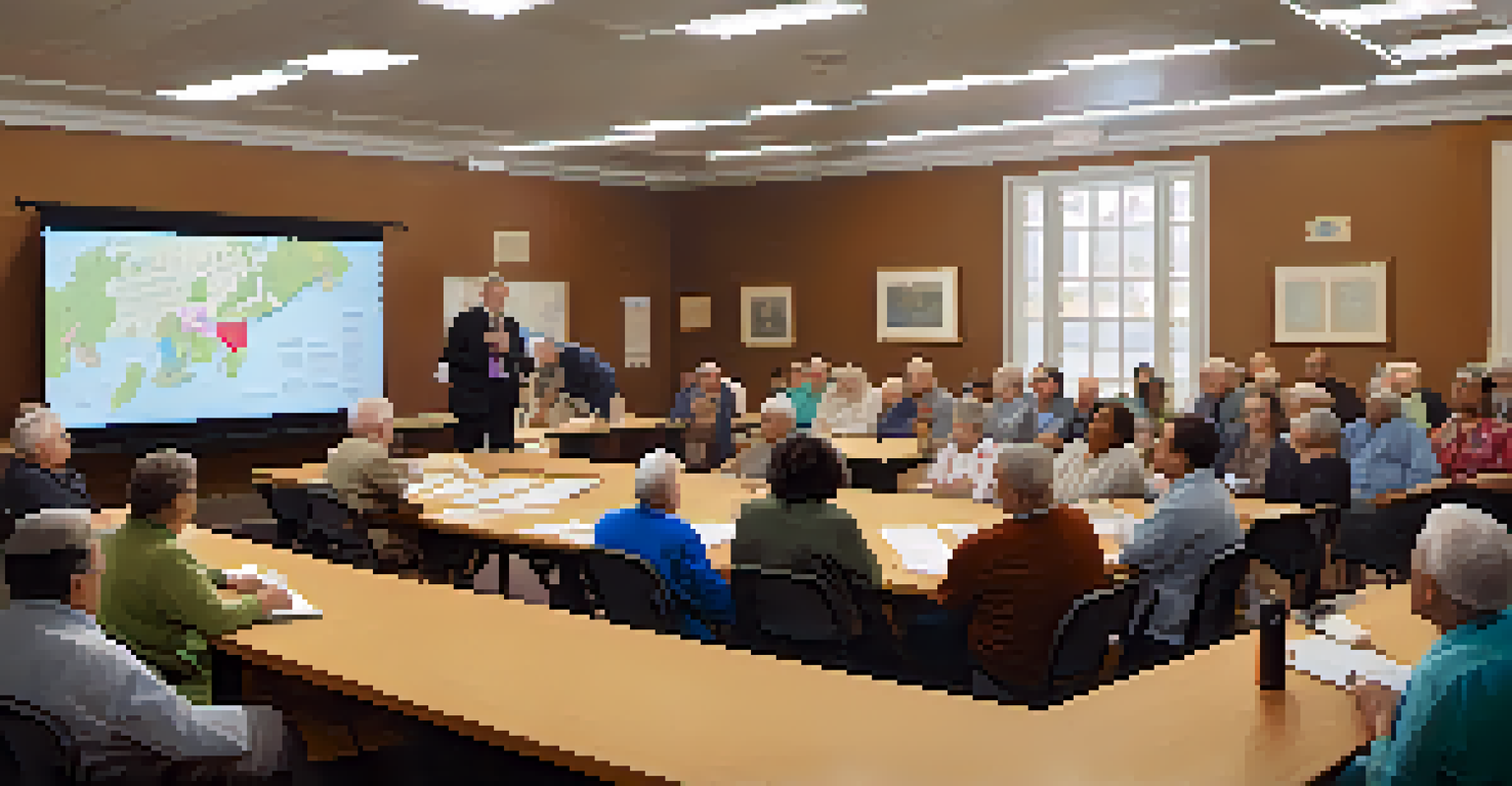Zoning Laws and Their Influence on Local Economies

Understanding Zoning Laws: What Are They?
Zoning laws are regulations that dictate how land can be used in a specific area. These rules can determine whether a property can be residential, commercial, or industrial. Think of it as a city's way of organizing itself to promote order and safety. Ultimately, zoning laws help shape the character of neighborhoods and influence local economies.
Zoning is not just about land use; it’s about people and their interactions.
For example, if a city zones a particular area for commercial use, it can attract businesses, creating jobs and boosting the local economy. Conversely, if an area is zoned strictly for residential use, it might limit economic opportunities. Understanding these basic principles is crucial for anyone looking to grasp the broader impact of zoning on a community.
Moreover, zoning laws can vary significantly from one place to another, reflecting the unique needs and values of each community. This diversity allows cities to cater to their specific economic goals, whether that involves increasing housing density or preserving open spaces.
The Role of Zoning in Economic Development
Zoning plays a pivotal role in economic development by influencing where businesses can operate. By designating certain areas for commercial activities, cities can create business hubs that attract investment. This not only increases local job opportunities but also enhances the overall economic vibrancy of the community.

For instance, a city that allows for mixed-use zoning can encourage a blend of residential and commercial spaces. This creates lively neighborhoods where people can live, work, and shop, thereby fostering a thriving local economy. The synergy between different types of zoning can lead to increased foot traffic, benefiting local businesses.
Zoning Shapes Community Economies
Zoning laws influence local economies by determining where businesses can operate and how land is utilized.
However, restrictive zoning can stifle growth and deter potential investors. If a community is overly cautious, it risks missing out on opportunities for economic advancement, emphasizing the importance of balanced zoning regulations that support growth.
Zoning Laws and Housing Affordability
One of the most significant impacts of zoning laws is on housing affordability. When areas are zoned primarily for single-family homes, it can lead to a shortage of affordable housing options. This, in turn, can push lower-income families out of the community, affecting the socio-economic diversity of the area.
The best way to predict the future is to create it.
Conversely, allowing for multi-family housing or mixed-use developments can increase the availability of affordable housing. This not only helps families find suitable places to live but also supports local economies by ensuring a diverse workforce. A well-planned zoning strategy can strike a balance between maintaining neighborhood character and promoting affordability.
Moreover, the conversation around housing and zoning is becoming increasingly urgent in many cities. As populations grow and the demand for housing rises, communities must reconsider their zoning laws to ensure they are inclusive and equitable.
Environmental Considerations in Zoning
Zoning laws also have a significant impact on environmental sustainability. By designating certain areas for parks, green spaces, or conservation, cities can protect natural resources and promote ecological health. These spaces not only enhance the quality of life but also attract eco-conscious residents and businesses.
On the flip side, poorly planned zoning can lead to urban sprawl, which often results in environmental degradation. For instance, extensive commercial development in a previously green area can disrupt local ecosystems and contribute to pollution. Therefore, integrating environmental considerations into zoning laws is crucial for sustainable development.
Impact on Housing Affordability
Zoning regulations significantly affect housing availability and affordability, impacting socio-economic diversity.
Furthermore, cities that prioritize green zoning can benefit economically by attracting tourism and outdoor activities. This creates a win-win situation where the environment is preserved while also boosting the local economy.
The Social Impacts of Zoning Laws
Zoning laws can shape the social fabric of communities by influencing who can live and work in an area. For example, restrictive zoning can lead to segregation, where only certain socioeconomic groups can afford to live in specific neighborhoods. This can create divisions in the community and limit social mobility.
In contrast, inclusive zoning practices that encourage diverse housing options can foster a sense of community and belonging. When people from different backgrounds live and work together, it enriches the local culture and strengthens social bonds. A vibrant, diverse community can also boost local businesses and economic growth.
Thus, zoning is not just about land use; it’s about people and their interactions. Thoughtful zoning can help build cohesive communities that thrive economically and socially.
Challenges and Controversies in Zoning
Zoning laws often face challenges and controversies, especially when community interests clash. For instance, proposed changes to zoning regulations can lead to heated debates among residents, business owners, and local governments. Concerns about gentrification, property values, and community character often come to the forefront.
These discussions can be vital for democracy, as they encourage public participation in local governance. However, they can also stall important economic development projects. Finding common ground among diverse stakeholders is essential for effective zoning reform that meets the needs of the entire community.
Environmental Sustainability Matters
Effective zoning can promote environmental health by protecting green spaces and reducing urban sprawl.
Moreover, as cities evolve, zoning laws must adapt to new realities. Embracing flexibility and innovative approaches can help cities address contemporary challenges while fostering a thriving local economy.
The Future of Zoning Laws and Local Economies
As urban areas continue to grow and change, the future of zoning laws is a topic of much discussion. Many cities are exploring more flexible zoning approaches, such as form-based codes, which focus on building design and public spaces rather than strict land use categories. This shift can help create more vibrant, walkable communities.
Additionally, the rise of remote work and changing lifestyles due to the pandemic are prompting a reevaluation of traditional zoning practices. Cities are beginning to consider how to best integrate residential and commercial spaces in a way that reflects current needs. This may lead to innovative zoning solutions that promote economic resilience.

Ultimately, the future of zoning laws will play a crucial role in shaping local economies. By remaining adaptable and responsive to community needs, cities can ensure sustainable growth and a thriving economic environment.